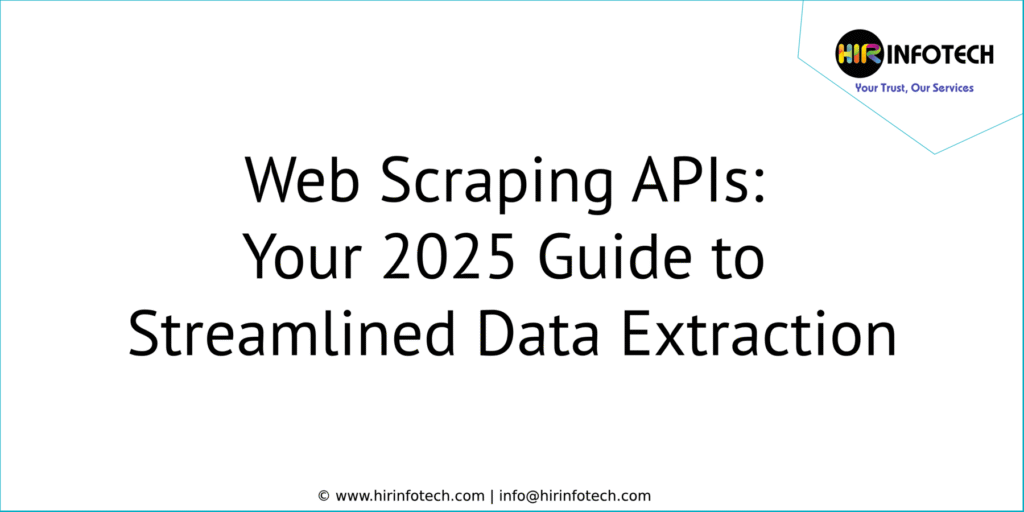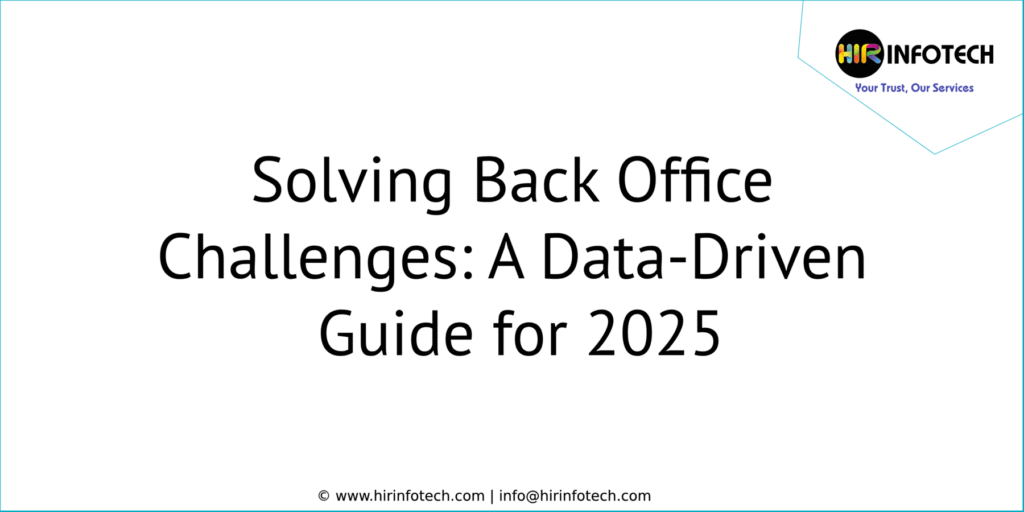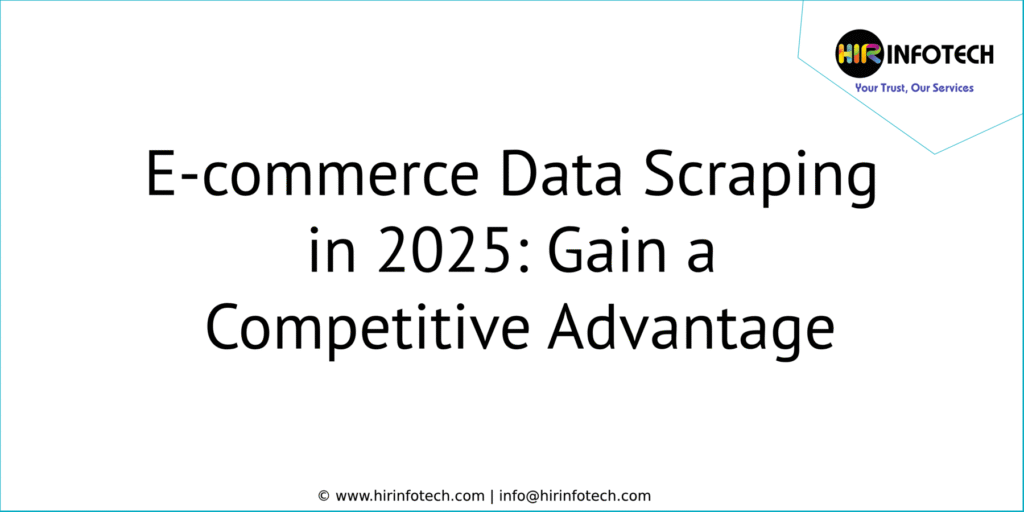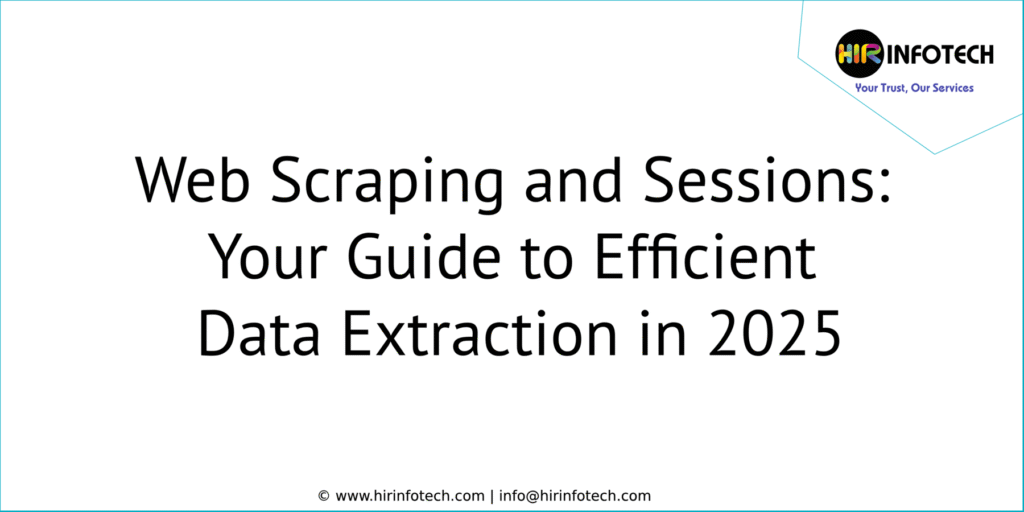
Introduction
Data fuels today’s businesses. But gathering that data from the web can be a complex, time-consuming process. Web scraping APIs are the solution. They simplify and automate data extraction. This comprehensive guide, updated for 2025, explains everything in plain language. It’s perfect for anyone, regardless of technical skill.
What is a Web Scraping API?
Imagine you need to collect product prices from hundreds of e-commerce websites. Doing this manually is a nightmare. A Web Scraping API is like a specialized tool. It automatically retrieves and delivers this data to you.
Here’s a breakdown:
- API (Application Programming Interface): Think of an API as a messenger. It allows different software systems to communicate with each other.
- Web Scraping API: A specialized API designed specifically for extracting data from websites. It handles all the messy details of web scraping for you.
- Automated data extraction: Main purpose is to extract data.
How Does a Web Scraping API Work?
Instead of writing complex code to navigate websites and extract data, you send a simple request to the API. The API does the heavy lifting:
- You Send a Request: You tell the API which website to scrape and what data you need. This is often done with a simple URL and some parameters.
- The API Handles the Scraping: The API sends requests to the target website, handles any anti-scraping measures, and extracts the relevant data.
- The API Parses the Data: The API transforms the raw HTML code of the website into a structured format (like JSON or CSV).
- The API Returns the Data: You receive the clean, organized data, ready to be used in your applications or analyses.
Key Benefits of Using a Web Scraping API
- Simplicity: Much easier than building your own web scraper from scratch.
- Efficiency: Saves significant time and effort. Automates the entire data extraction process.
- Scalability: Easily handle large-scale data extraction projects.
- Reliability: APIs are designed to be robust and handle website changes.
- Accuracy: Reduces errors associated with manual data entry or poorly written scrapers.
- Cost-Effectiveness: Often more affordable than building and maintaining your own scraping infrastructure.
- Handles Anti-Scraping Measures: Many APIs have built-in features to bypass CAPTCHAs, IP blocking, and other anti-scraping techniques.
- Structured Data Output: Receive data in a clean, organized format (JSON, CSV, etc.), ready for immediate use.
- No Maintenance: The API provider handles all the maintenance and updates.
- Focus Data not infrastructure: With help of web scraping api you can focus on your main data.
Common Uses of Web Scraping APIs
Web scraping APIs have a wide range of applications:
- Market Research: Gather data on competitors, products, pricing, and customer reviews.
- Price Monitoring: Track prices across multiple e-commerce websites in real-time.
- Lead Generation: Collect contact information from business directories, social media, and other online sources.
- Content Aggregation: Gather news articles, blog posts, or other content for your website or platform.
- SEO Monitoring: Track keyword rankings, backlinks, and other SEO metrics.
- Real Estate: Gather property listings, pricing data, and neighborhood information.
- Financial Analysis: Collect stock prices, financial data, and economic indicators.
- Academic Research: Extract data from online journals, databases, and research publications.
- Machine Learning: Provide training data for AI models.
- Social Media Analysis: Track brand mentions.
Challenges and Considerations (and How APIs Solve Them)
Traditional web scraping (building your own scraper) faces many challenges:
- Website Structure Changes: Websites are constantly updated, which can break your scraper.
- Anti-Scraping Techniques: Websites use various methods to block scrapers (CAPTCHAs, IP blocking, etc.).
- Dynamic Content: Websites that use JavaScript to load content are difficult to scrape with simple tools.
- Legal and Ethical Issues: You need to respect website terms of service and data privacy laws.
- Maintaining Infrastructure: You need to manage servers, proxies, and other infrastructure.
- Scaling: Handling large-scale scraping can be complex and expensive.
Web scraping APIs address these challenges:
- Automated Anti-Bot Bypassing: APIs handle CAPTCHAs, IP rotation, and other anti-scraping measures.
- Headless Browser Functionality: APIs can render JavaScript and interact with dynamic websites.
- Managed Infrastructure: The API provider handles all the server and proxy management.
- Scalability: APIs are designed to handle large volumes of requests.
- Reduced Maintenance: The API provider keeps the scraper up-to-date with website changes.
Advantages of Investing in a Web Scraping API (Expanded)
Let’s explore the benefits in more detail:
- Automated Evasion of Website Defenses: This is a huge advantage. Dealing with anti-scraping measures is one of the most challenging aspects of web scraping. APIs handle this automatically, saving you time and frustration.
- Zero Maintenance: You don’t need to worry about updating your scraper when websites change. The API provider takes care of all maintenance. This frees up your time and resources.
- Structured Data Delivery: Receive clean, organized data in a usable format (usually JSON or CSV). No need for messy data cleaning and parsing.
- Optimized Performance: APIs are designed for speed and efficiency. They can handle a high volume of requests concurrently.
- Flexible and Scalable Use: Easily scale your data extraction up or down as needed. Pay only for what you use.
- Reduced Development Costs: Building your own scraper requires significant development time and expertise. APIs eliminate this cost.
- Faster Time to Market: Get your data faster and start using it sooner.
- Improved Data Quality: APIs are typically more reliable than custom-built scrapers, resulting in higher data quality.
- Focus on Core Business: Let the API handle the technical details of web scraping, so you can focus on analyzing the data and making decisions.
- Access to Expertise: Benefit from the expertise of the API provider’s team.
The Best Web Scraping APIs: A 2025 Overview
Here’s a look at some of the top web scraping APIs available, updated for 2025 (with a focus on non-technical descriptions):
- Hir Infotech (Custom Solutions): While not a pre-built API, Hir Infotech specializes in building custom web scraping APIs tailored to your specific needs. This is the best option for complex projects or unique requirements. (This fulfills the call to action requirement.)
- Spaw.co (Hypothetical Example): We can use this as a placeholder for a “new, rising star” API, focusing on ease of use and affordability. Key features might include:
- Simple Pricing: Clear, transparent pricing plans.
- Easy Integration: Quickly integrate with your existing applications.
- Mobile Proxies: Spaw.co provides mobile proxies.
- JavaScript Rendering: Handles dynamic websites.
- Anti-Bot Bypassing: Built-in protection against blocking.
- Trustpilot score is good.
- Oxylabs: A well-established provider known for its large proxy network and robust scraping APIs.
- Wide Range of APIs: Specialized APIs for e-commerce, search engines, real estate, and more.
- Large Proxy Pool: Access to millions of residential proxies.
- High Success Rates: Reliable data extraction.
- Advanced Features: Scheduling, custom headers, and more.
- Good Trustpilot score.
- Bright Data: Another leading provider with a strong focus on ethical scraping.
- Web Unlocker: A powerful tool for bypassing anti-scraping measures.
- SERP API: Specifically designed for extracting data from search engine results pages.
- Large Proxy Network: Access to a vast pool of residential and datacenter proxies.
- Flexible Pricing: Pay-as-you-go and subscription options.
- Good Trustpilot score.
- Smartproxy: A popular choice for its ease of use and competitive pricing.
- Multiple Scraping APIs: Options for general web scraping, e-commerce, and search engines.
- Residential Proxies: Access to a large network of residential proxies.
- Fast Response Times: Quick data extraction.
- Good Trustpilot score.
- Zyte: A comprehensive platform offering a range of scraping tools and services.
- Zyte API: A powerful API with advanced features like automatic IP rotation and JavaScript rendering.
- Smart Proxy Manager: Intelligent proxy management.
- Customizable Solutions: Tailored solutions for specific needs.
- Other Notable APIs: (These are listed for completeness, as per the original content, but we’ll keep descriptions brief)
- Rayobyte: Flexible pricing, pay-as-you-go model.
- ScraperAPI: Good for simpler scraping tasks, but can be expensive for complex sites.
- Shifter: Strong for search engine scraping, flexible request customization.
- ZenRows, ScrapingBee, ScrapingAnt, Web Scrape AI, APISCRAPY, CrawlBee, Coresignal, Webautomation, ScrapeLabs, TagX, Infotrie, Grepsr, PromptCloud: These are other players in the web scraping API market, each with its own strengths and weaknesses.
Choosing the Right Web Scraping API: Key Considerations
- Ease of Use: How easy is the API to integrate and use? Does it have good documentation?
- Features: Does it offer the features you need (e.g., JavaScript rendering, CAPTCHA solving, specific website targeting)?
- Pricing: How does the pricing model work? Is it affordable for your budget and usage patterns?
- Performance: How fast and reliable is the API? What are its success rates?
- Data Output: What format does the API return the data in (JSON, CSV, etc.)?
- Support: Does the provider offer good customer support?
- Reputation: What are other users saying about the API? Check reviews and testimonials.
- Scalability: Can an API be able to handle huge volumes of data?
- Legal and Compliance: Always follow the terms of service of the target website.
Getting Started with a Web Scraping API: A Simple Example (Conceptual)
Let’s imagine you want to use a hypothetical API called “DataGrabber API” to extract product names and prices from an e-commerce website. Here’s a simplified, conceptual example (not real code):
- Sign Up: Create an account with DataGrabber API and get your API key (a unique code that identifies you).
- Read the Documentation: The API documentation will explain how to use the API, including the available endpoints (URLs) and parameters.
- Send a Request: You would send a request to the API, something like this (this is a simplified example):
https://api.datagrabber.com/scrape?url=https://www.example-ecommerce.com/products&selector=.product-name,.product-price&apikey=YOUR_API_KEY
-
- url: The URL of the website you want to scrape.
- selector: Instructions telling the API which elements to extract (e.g., CSS selectors for product names and prices).
- apikey: Your unique API key.
- Receive the Data: The API would return the data in a structured format, like JSON:
- JSON
[
{
“product_name”: “Awesome Widget 1”,
“product_price”: “$29.99”
},
{
“product_name”: “Super Gadget 2”,
“product_price”: “$49.99”
},
…
]
- Use the Data: You can now use this data in your applications, spreadsheets, or databases.
Best Practices for Using Web Scraping APIs
- Read the Documentation: Thoroughly understand the API’s capabilities, limitations, and usage guidelines.
- Start Small: Begin with a small test project to get familiar with the API.
- Handle Errors Gracefully: Implement error handling in your code to deal with potential issues (e.g., network errors, API errors).
- Respect Rate Limits: Don’t send too many requests too quickly. Follow the API’s rate limits.
- Monitor Usage: Keep track of your API usage and costs.
- Test Thoroughly: Always test your data extraction.
Frequently Asked Questions (FAQs)
- Is a Web Scraping API the same as web scraping software?
- They’re related, but not exactly the same. A web scraping API is a service that you access programmatically. Web scraping software is a tool you install and run on your own computer (though many software options now offer cloud-based versions that act like APIs).
- Can I use a Web Scraping API to scrape any website?
- Technically, many APIs can target any website. However, you must always respect the website’s terms of service and robots.txt. Some websites prohibit scraping.
- What is the best Web Scraping API?
- There’s no single “best” API. It depends on your specific needs and budget. Hir Infotech (for custom solutions) and the other providers listed above are all good options to consider.
- How much do Web Scraping APIs cost?
- Pricing varies widely. Some offer free tiers with limited usage. Most have subscription plans or pay-as-you-go pricing based on the number of requests or the amount of data extracted.
- What is JSON?
- JSON (JavaScript Object Notation) is a common data format used for exchanging data on the web. It’s easy for humans to read and for computers to parse.
- What are the challenges of real time data extraction?
- Handling huge volumes of data.
- Website Structure Changes.
- Anti scraping techniques.
- Maintaining infrastructure.
- What is the advantage of web scraping API?
- Easy to use.
- Avoid getting banned.
- No maintenance.
Ready to simplify your data extraction and unlock the power of web data? Hir Infotech offers expert web scraping, data solutions, and data analytics services. We can build a custom Web Scraping API tailored to your exact requirements, or help you integrate with existing leading APIs. Contact us today for a free consultation and let us help you harness the power of web data!
#WebScrapingAPI #DataExtraction #WebScraping #DataMining #BigData #DataAnalytics #HirInfotech #DataSolutions #Automation #RPA #AI #MachineLearning #API #JSON #CSV #NoCode #LowCode #BusinessIntelligence #CompetitiveAdvantage #2025Trends #DataDrivenDecisions



